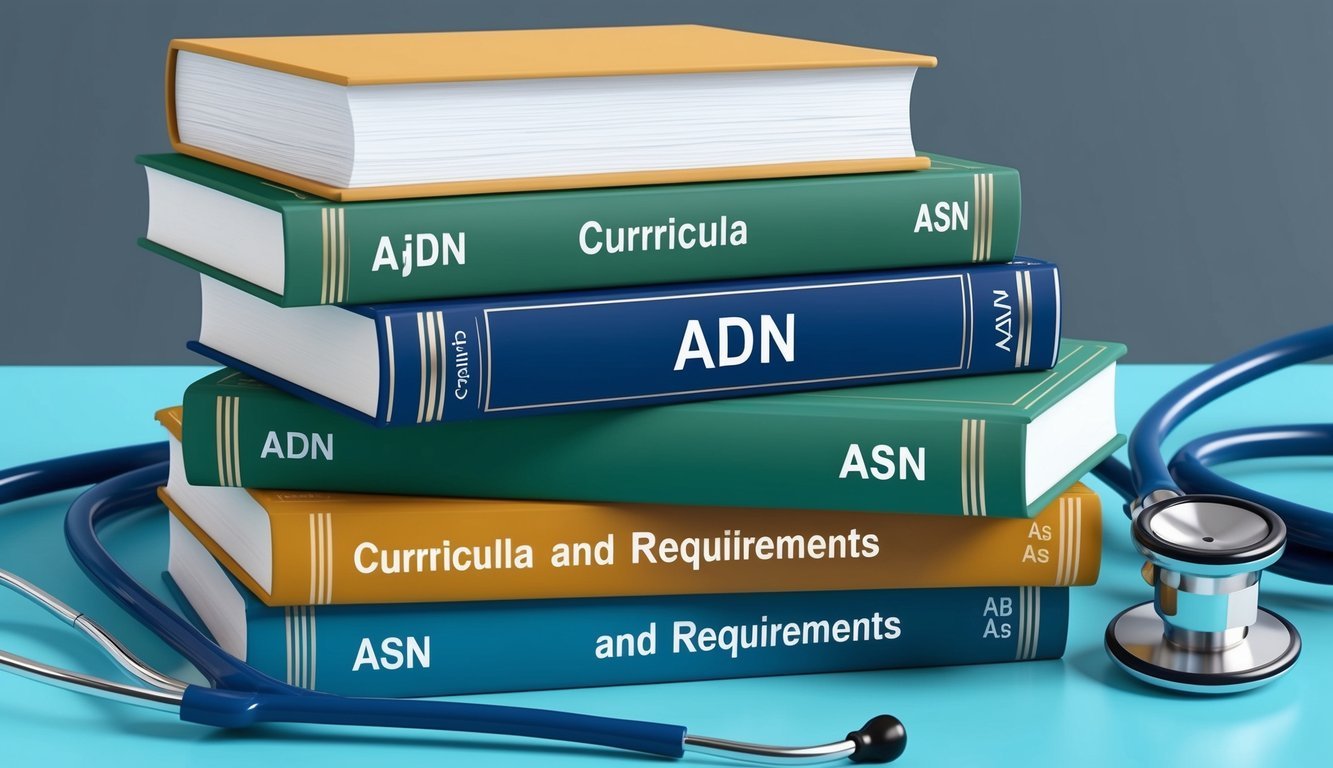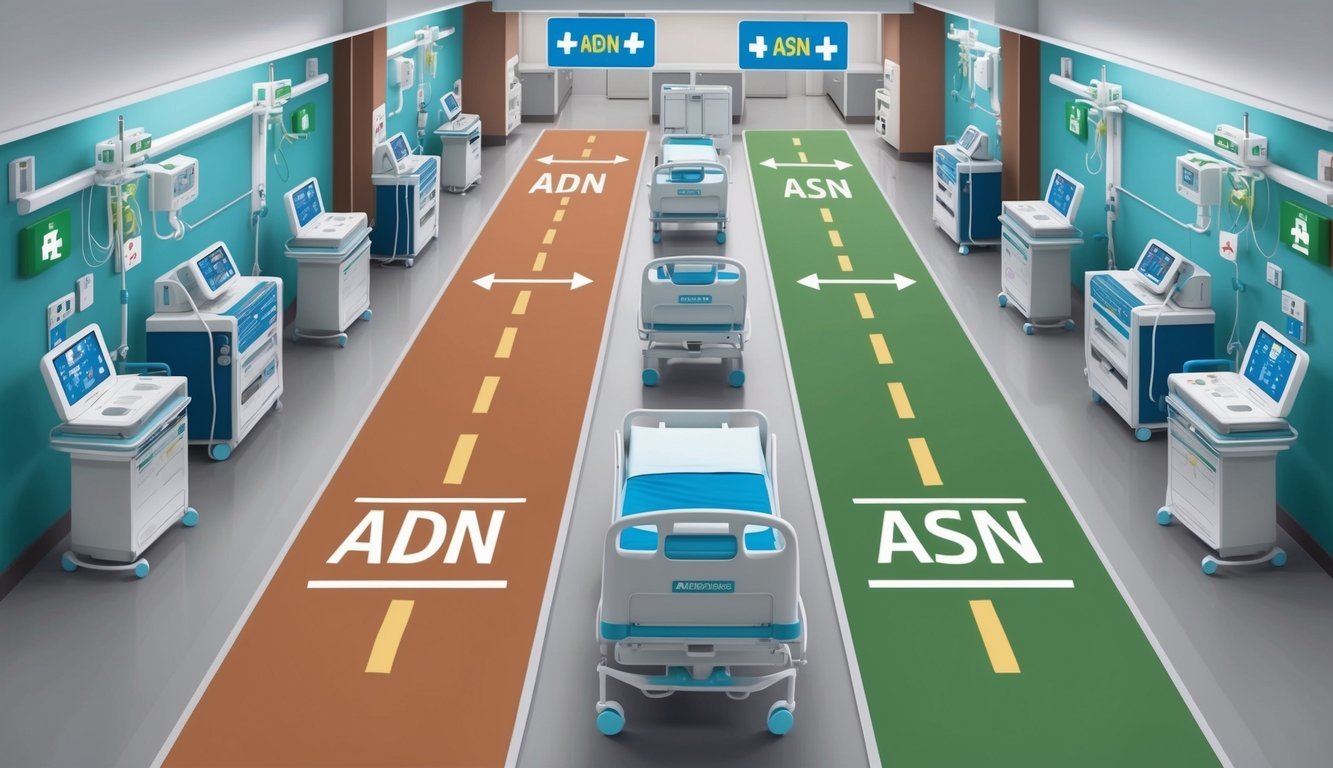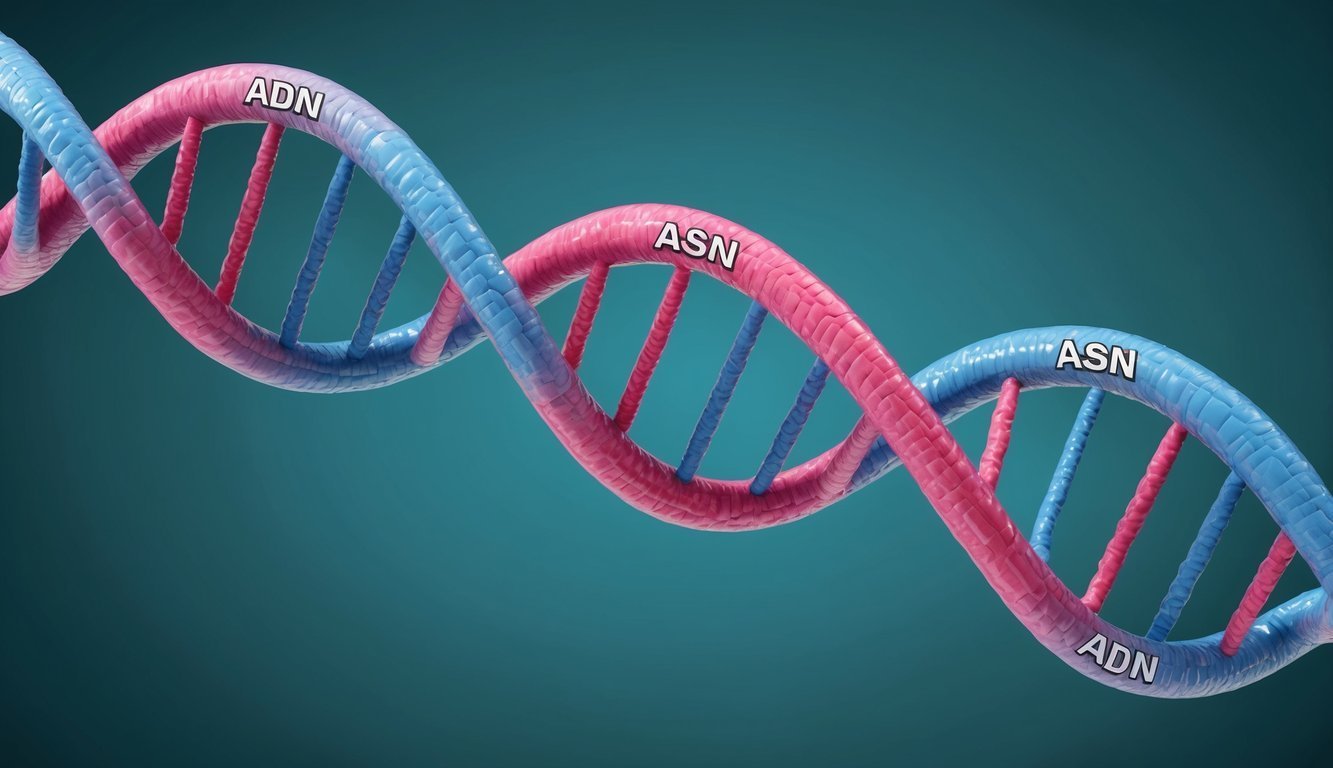When considering a career in nursing, you may find yourself evaluating the differences between an Associate Degree in Nursing (ADN) and an Associate of Science in Nursing (ASN). ADN programs offer a broad foundation in nursing practice, while ASN programs emphasize a more scientific and technical approach to healthcare. Understanding these nuances can influence your educational path and career prospects in nursing.
ADN programs typically prepare you for immediate entry into the nursing workforce and qualify you to take the NCLEX-RN exam.
In contrast, ASN programs often delve deeper into the sciences related to patient care, providing a more research-oriented perspective.
This can be particularly beneficial for those looking to advance their education with a Bachelor’s degree later on.
As you explore your options in nursing education, recognizing the differences between these two paths will be crucial.
Each pathway has its own set of prerequisites, coursework, and clinical experiences, which can shape your future career.
For a deeper dive into the subject, check out resources that compare these nursing degrees in more detail, such as Nurse.org.
Understanding Nursing Degrees
Nursing degrees come in various formats, each serving different career paths in healthcare.
This section explores the distinctions between various associate and advanced nursing degrees, focusing on key aspects relevant to aspiring nurses.
Associate Degrees in Nursing
The Associate Degree in Nursing (ADN) typically takes two years to complete and prepares you for entry-level positions as a registered nurse (RN).
This program combines both general education and specialized nursing courses, facilitating foundational skills in patient care, anatomy, and pharmacology.
Another option is the Associate of Applied Science in Nursing (AAS), which is similar to the ADN but may include a stronger emphasis on practical applications.
Programs often require clinical hours, ensuring that you gain hands-on experience before entering the workforce.
| Degree Type | Duration | Focus |
|---|---|---|
| ADN | 2 years | Entry-level nursing skills |
| AAS | 2 years | Practical applications in nursing |
Baccalaureate Nursing Education
A Bachelor of Science in Nursing (BSN) expands upon the ADN or AAS with an additional two years of education, focusing on management, research, and public health.
This degree opens doors to more advanced roles in nursing and offers a broader understanding of healthcare systems.
Many healthcare facilities increasingly prefer or require BSN-prepared nurses due to their comprehensive training.
If you already hold an ADN, consider an RN-to-BSN program, which can help you transition into this degree efficiently.
Advanced Nursing Degrees
If you aspire to take your nursing career further, advanced degrees like the Master of Science in Nursing (MSN) can offer specialization in fields such as nurse practitioner, nurse educator, or clinical nurse leader.
These programs usually require a BSN as a prerequisite and often involve more extensive clinical training and management theory.
Pursuing an MSN can position you for leadership roles and increase your earning potential.
Not only will you deepen your expertise, but you’ll also enhance your ability to impact patient care and healthcare policy significantly.
Curricula and Requirements

When considering ADN and ASN programs, it’s important to examine the structure of the curriculum, the required coursework, and the clinical experience involved.
Each program has distinct features that influence your path to becoming a registered nurse.
ADN and ASN Programs
ADN (Associate Degree in Nursing) programs typically focus on a blend of nursing core courses and clinical experience.
The curriculum emphasizes foundational nursing knowledge and includes:
- Nursing Courses: Fundamental nursing principles, patient care techniques, and specific areas like pharmacology.
- Clinical Hours: Usually require 500-600 hours of hands-on experience in healthcare settings.
- General Education Courses: Typically include subjects like psychology and microbiology, aiding in a well-rounded education.
ASN (Associate of Science in Nursing) programs may vary slightly.
They might focus more on clinical practices and less on theoretical components.
Both programs generally prepare you for the NCLEX-RN, which is necessary for obtaining your nursing license.
BSN Programs and Beyond
If you decide to pursue further education after earning your ADN or ASN, BSN (Bachelor of Science in Nursing) programs provide advanced training.
These programs generally include:
- Extended Curriculum: Covers leadership, research methodology, and community health nursing.
- Longer Program Length: BSN programs usually take 3-4 years to complete, compared to 2-3 years for ADN or ASN programs.
- Advanced Clinical Experience: You will have more opportunities to work in diverse clinical settings.
Transitioning to a BSN can enhance your career prospects, particularly for roles in management or specialized nursing areas.
For more information on ADN and ASN programs, you can explore resources such as Nurse.org.
Licensing and Examination

Understanding the licensing and examination process is crucial for your career as a nurse.
The NCLEX-RN exam is a central component that determines your eligibility to practice as a registered nurse.
NCLEX-RN for Registered Nurses
To become a registered nurse (RN), you must pass the NCLEX-RN exam.
This standardized test assesses your knowledge and skills in nursing.
It covers various topics, including patient care, safety, and health promotion.
Key Information:
- Eligibility: To sit for the NCLEX-RN, you must have completed an accredited nursing program, such as ADN or ASN.
- Exam Format: The NCLEX-RN uses a computer adaptive testing format, adjusting the difficulty based on your performance.
- Content Areas: It includes multiple-choice questions and focuses on critical thinking and clinical judgment.
To prepare for the NCLEX-RN, consider reviewing resources such as practice exams or study guides.
You can find valuable preparation materials at NCSBN.
Career Pathways in Nursing

Exploring career pathways in nursing can lead to a fulfilling professional journey.
You have various options, whether aiming for entry-level positions or looking to specialize.
Entry-Level Nursing Positions
Entry-level nursing positions serve as critical stepping stones in your career.
Common roles include:
- Registered Nurse (RN): Requires an ADN or BSN. Responsible for patient care, assessments, and medication administration.
- Licensed Practical Nurse (LPN): Often requires a diploma or certificate. LPNs provide basic care, record patient health data, and assist RNs.
- Nursing Assistant: Requires a state certification. Responsibilities include assisting patients with daily activities and monitoring vital signs.
These roles often allow you to work in diverse settings, such as hospitals, nursing homes, and home health environments.
Gaining experience in these positions is essential for developing core nursing skills and enhancing your understanding of healthcare practices.
Nursing Specialties and Advancements
As you progress in your nursing career, consider various specialties to enhance your expertise.
Specialty areas include:
- Pediatrics: Focus on child healthcare.
- Geriatrics: Specialize in elderly patient care.
- Critical Care: Handle patients with severe conditions in ICUs.
Advancing your education, such as obtaining a BSN or pursuing certifications, can open doors for leadership roles, such as nurse manager or clinical nurse specialist.
Specializing allows you to work closely with specific patient populations and can make you a valuable member of the healthcare team.
Continuing Education and Transition Programs

Continuing education in nursing is critical for career advancement and enhancing clinical skills.
Transition programs facilitate movement from one level of education to another, such as from an Associate Degree in Nursing (ADN) to a Bachelor of Science in Nursing (BSN).
RN to BSN Pathways
RN to BSN programs are designed for registered nurses who hold an ADN or ASN.
These programs focus on broadening your nursing knowledge and skills.
Key aspects of RN to BSN programs include:
- Duration: Most programs can be completed in 12 to 24 months, depending on your pace.
- Clinical Experience: You often gain advanced clinical training that prepares you for various settings.
- Curriculum: Courses typically cover leadership, community health, and research methods.
Many universities offer flexible online options, making it convenient for working nurses to advance their education.
Explore programs at accredited nursing schools to find the best fit for your schedule.
Graduate Studies in Nursing
Pursuing a Master of Science in Nursing (MSN) opens further opportunities for specialization and leadership roles.
This pathway is vital for those looking to enhance their practice.
Considerations for MSN programs:
- Specializations: You can focus on nurse practitioner roles, nursing education, or healthcare administration.
- Admission Requirements: Most programs require a BSN and relevant clinical experience.
- Program Length: Typically, MSN programs take 2 to 3 years to complete.
Transitioning to graduate studies equips you with advanced skills necessary for high-level nursing practice.
It’s essential to research various MSN programs to ensure they align with your career aspirations.

